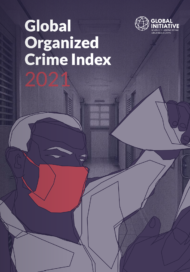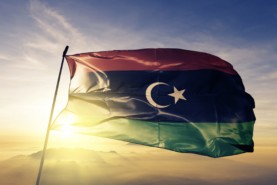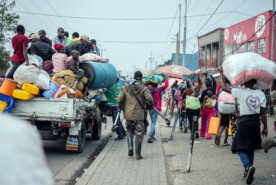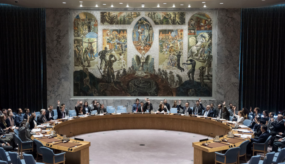Posted on 13 Apr 2022
When Afghanistan pledged to halt the world’s biggest opium and heroin supply, it was certain to attract international headlines. That might have been the motivation behind the announcement in early April that the Taliban would prohibit poppy cultivation. More specifically, the country may be seeking an alternative path to international recognition and assistance. Whether the ban will have the intended effects is doubtful.
The recent move by the Taliban to ban opium poppy cultivation – and this is not the first time – has intrigued a number of observers. Why prohibit an immensely lucrative and drought-resistant crop just as Afghanistan’s economy teeters towards collapse, without international pressure or assurance of diplomatic or financial benefit? There is good reason to be sceptical of the Taliban’s intentions. Although its earlier ban on poppy cultivation was remarkably effective – by some estimates, it caused a 75 per cent reduction in the global heroin supply – the moratorium was too brief (from July 2000 to October 2001) to draw definitive conclusions about its long-term prospects, including whether the prohibition would have sustained political support.
The motives then, too, were murky. Ending Kabul’s international isolation and sanctions was clearly one. Market forces may have been another, as opium and heroin prices reached all-time highs, after a period of oversupply, driving up the taxes the Taliban reportedly still collected. But farmers in the Taliban’s southern heartland were increasingly disgruntled, and enforcement began to wane before the October 2001 NATO invasion.
The ensuing insurgency reshaped the Taliban’s relationship to opium and heroin. Although Taliban leaders maintained sanctuaries in Pakistan and received funding from Pakistani and Arab donors, it wasn’t enough to sustain what became an almost 20-year fight against the US and the republic it backed. The drug trade helped plug that financial gap. The Taliban benefited primarily by taxing farmers, labs, traffickers and other actors, applying Islamic taxes on poppy cultivation that not only generated major revenues but also provided a religious justification for them. US officials estimated that the drug economy was generating US$200 million a year for the Taliban; other estimates were as high as US$400 million. By allowing poppy cultivation in areas under their control, the Taliban also won the support of southern farmers who resented international and government pressure to abandon a lucrative crop.
The opium poppy is vital to the Afghan economy. Even before the Taliban’s 2021 victory, drought and the COVID-19 pandemic had weakened rural and urban economies. Water shortages devastated staples such as wheat and corn, and other vegetables and fruits. A crop that needs little water, poppy cultivation rose by 37 per cent in 2020, according to the United Nations Office on Drugs and Crime (UNODC). The poppy’s resilience amid adverse agricultural conditions makes it an attractive long-term investment. In 2021, Afghanistan’s illicit opiate economy’s gross output was estimated at between US$1.8 and US$2.7 billion, a 12 per cent increase from 2020, representing a staggering 9 to 14 per cent of the country’s GDP.
The trade is a convenient business for other reasons. Warlords and traffickers lend money to farmers to plant poppy, collecting the opium paste directly from them. Poppy cultivation provides easy access to credit and easy sale, avoiding the risks of transporting the crop to market. It also offers tenant farmers access to land and daily-wage labourers significant opportunities during harvest seasons. Disrupting this business, for a regime that is abundantly aware of the risks, requires meticulous deliberation. Why impose this ban now?
International recognition
Until Russia’s war in Ukraine, Afghanistan was the big foreign-policy story. After the Taliban’s August 2021 takeover, governments, humanitarian organizations and analysts were scrambling to find ways to protect Afghans from starvation without doing direct business with the regime. A consensus was forming in the policy community that the US should ease sanctions and unfreeze the Afghan central bank foreign reserves, even if this benefited a ‘terrorist’ regime in Kabul. Although the Taliban was still short of diplomatic recognition, it seemed to be inching closer towards meaningful international engagement.
But the Ukraine war has diminished the resources and political capital Western governments are willing to expend on Afghanistan. Even significant developments, such as the US treasury’s 25 February General License 20, issued the day after Russia’s invasion of Ukraine, passed with little commentary or supplementary action. This licence allows for most transactions that do not involve direct transfers to the Taliban, their Haqqani Network allies, or other listed individuals (or entities they own), removing most legal impediments to doing business in Afghanistan. Yet, Afghanistan’s banks are still not integrated into the global banking system, and the financial sector and formal economy remain broken.
But the biggest blow to the Taliban’s bid for international legitimacy was self-inflicted. Less than a week after the UN Security Council voted to extend the UN’s political mission in Afghanistan, the regime reneged on its earlier decision to permit secondary education for girls. The international community was outraged and the US cancelled a late March meeting with Taliban representatives in Doha. If hopes for Afghan girls and women to live a life of dignity and equality under the Taliban – an apparent red line for Western governments – are fading, then so, too, are the prospects of deeper diplomatic engagement. Hence, the poppy prohibition could well be an attempt to salvage the situation, harnessing international focus to what, in the Taliban’s view, should be a more practical concern.
If that is its intent, the Taliban may be disappointed. Counter-narcotics cooperation will be a low priority even for Western governments such as the UK, which have to contend with heroin from Afghanistan ending up on their streets. Their counter-narcotics strategies during the days of the republic had failed, well before the Taliban took Kabul. With the Taliban now in charge, the UNODC, the US Drug Enforcement Administration and other agencies’ presence in Afghanistan will be minimal. ‘The UN would not get a penny from member states to work with Enemy Number One,’ said one retired UN expert. International strategies to stop the flow of Afghan narcotics will have to rely on interdiction and interception, in partnership with transit countries, such as Pakistan and Turkey.
More than just form
Who will bear the brunt of the ban? Going by the past record, curbing the opium trade could provide the Taliban’s armed rivals with the same opportunity to exploit rural discontent that eradication efforts under the republic gave the Taliban insurgency. On this question, too, the injunction’s timing is relevant.
The southern provinces of Helmand and Kandahar are the heartland of the Taliban movement and poppy production. But cultivation has gradually increased in the north, in areas where the Taliban’s opponents maintain influence. The crop growth cycle in the south begins around March and April, but the farther north one goes, the later it begins. By the time the regime starts enforcing the ban, it may have only the northern harvest to affect. Any forthcoming headlines pronouncing action against poppy farmers should be read in this context – as a function of the Taliban’s assertion of authority in the north.
Selective application of the ban could also benefit Taliban allies in the south. Market saturation had depressed opium prices in 2021, according to the UNODC. But the price of heroin is highly elastic and had already risen as neighbours closed or tightened their borders with Afghanistan after August 2021, and cultivation also saw a decline. According to an analyst who spoke on condition of anonymity, after the announcement of the ban the price of opium in Kabul rose by as much as seven times as dealers anticipated disruptions to the northern harvest. Fluctuations in price are something to watch, in Afghanistan and Western markets, to determine the ban’s impact on supply.
The 2000 prohibition on poppy cultivation was enforced for the most part. This might persuade many observers to take the new ban seriously and see it as a significant step. But for Western governments, it will not obscure the Taliban’s record on women’s and human rights. And like other relatively positive steps the Taliban has taken, this could eventually see a reversal.



